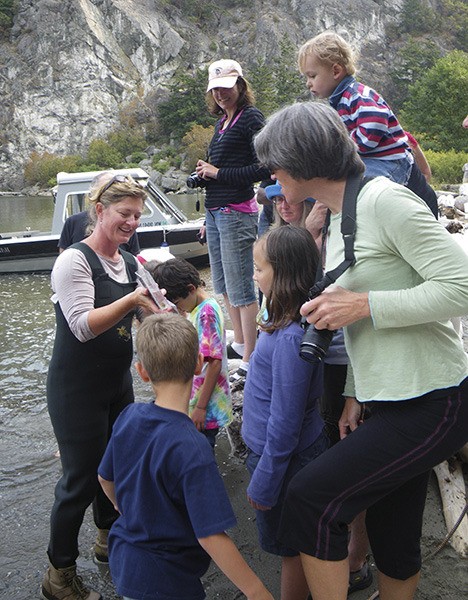The nonprofit conservation laboratory Kwiaht has announced a special training program for islanders interested in providing science outreach to visitors and schools at 10 long-term monitoring stations in the San Juan Islands, including parts of the recently established National Monument. Volunteer opportunities for trainees will include Indian Island in East Sound, Cattle Point on San Juan Island and Iceberg Point on Lopez Island.
Monthly training sessions from January to June will range from seabirds to native wildflowers and pollinators, marine invertebrates, fish and plankton, supplemented by a number of labs and spring field trips. Training sessions will be held on Lopez, Orcas and San Juan Islands, focusing on each island’s special places, and also highlighting some of their important ecological differences.
Participants will learn to identify hundreds of plants and animals routinely seen at Kwiaht monitoring sites, and to explain their interrelationships in evolution and ecology. This broad knowledge of local ecosystems is intended to complement the technical skills and research methods learned on the job by Kwiaht’s “citizen scientists”.
Noting the rapid increase in visitors to the islands’ public lands, Kwiaht director Russel Barsh says that “our aim is to ensure that every volunteer research team we have working at these popular shorelines and islets includes at least one knowledgeable local educator that can enhance visitors’ experience—and help protect our fragile ecosystems through education and example.”
Training is open to Kwiaht’s current volunteers as well as other islanders willing to make a commitment to volunteer at least 60 hours to public outreach and education in 2015-2016. Applicants selected for training will pay just $50 for printed materials and lab supplies for the 30-contact-hour course.
“Give yourself a gift of knowledge for the holidays by signing up!” says Barsh.
Islanders that complete this training will earn the right to wear special ASK ME! caps that identify themselves to visitors as interpretive guides and educators.
More information is available by visiting Kwiaht’s website, its facebook page, or by writing to kwiaht@gmail.com.



